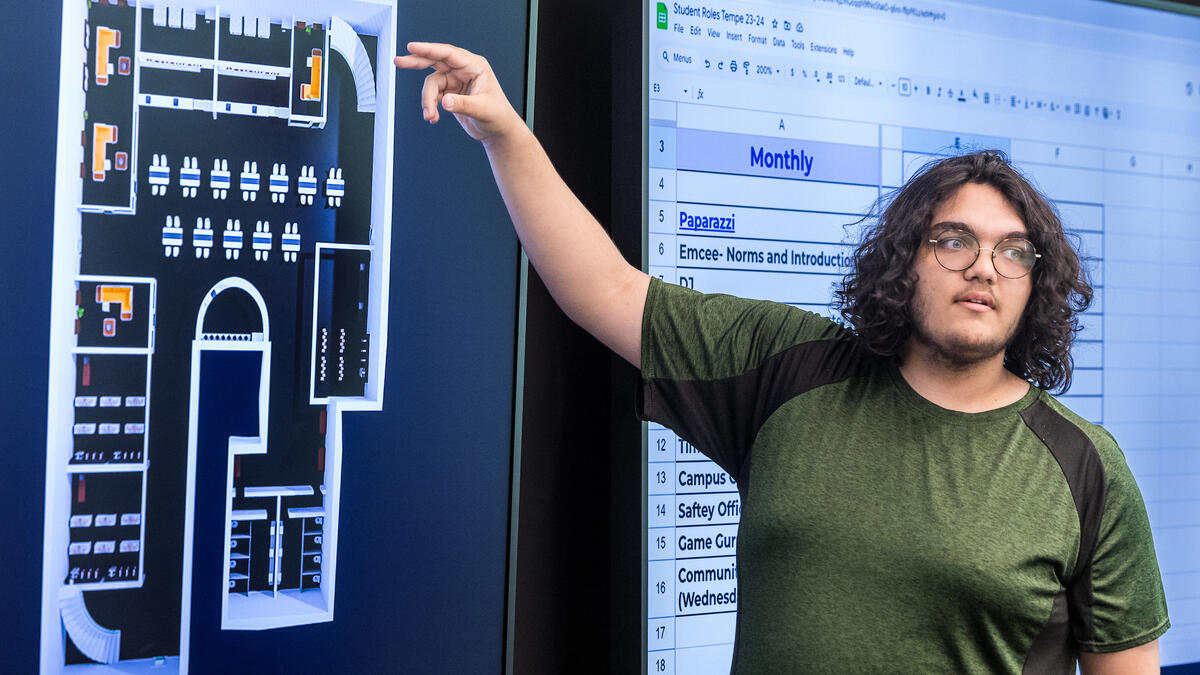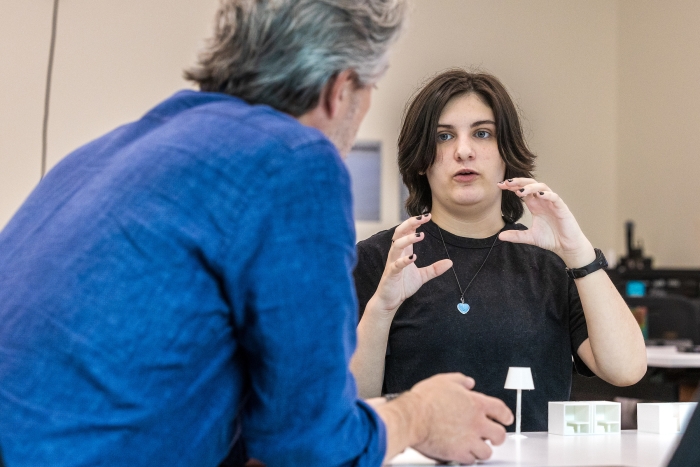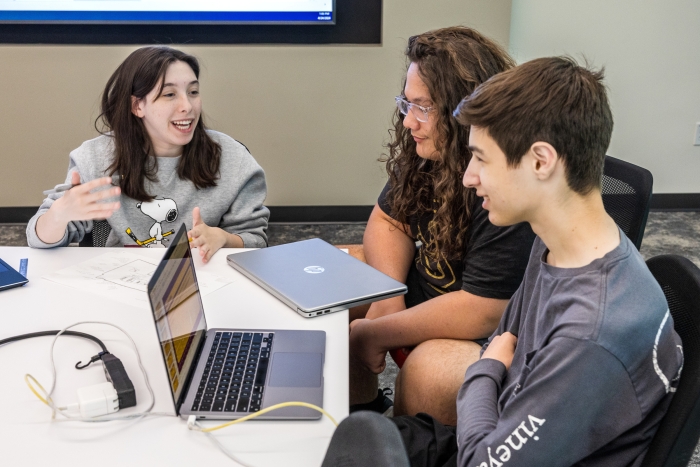ASU Prep Digital students explore career paths on campus

ASU Prep Digital junior Rayhaaz Kohli presents his group's blueprint for a new food court at the Novus building during a class presentation on April 24. Photo by Charlie Leight/ASU News
Nearly 200 high school students who learn online through ASU Prep Digital have spent the past academic year connecting with careers through project-based learning on the campuses of Arizona State University.
The students, who participate in ASU Prep Digital+, come to an ASU campus two days a week to make films, create architectural models, build journalism portfolios and record TED talks.
The goal is to let the students take a deep dive into a career area with project-based learning, according to Trista Zobitz, the microschool program manager for ASU Prep Digital.
“We want to give them the college experience but also to have them thinking about their future and what that looks like,” she said.
The program started at the West Valley campus in 2022, Zobitz said.
“Right after the COVID pandemic, we realized that there was a need to allow students who are attending high school digitally a chance to attend in person. They don’t have to be in school five days a week but they also don’t have to be online five days a week,” she said.
This past year, ASU Prep Digital+ was held at four campuses — Tempe, Downtown Phoenix, West Valley — and the Media and Immersive eXperience Center in downtown Mesa.
High school students in the program meet with faculty members as they explore different topics. Marc Neveu, co-director for the Center of Building Innovation and a professor of architecture in The Design School, worked with the group on the Tempe campus, which explored ways to reimagine the Novus building.
The ASU Prep Digital students at the MIX Center helped to produce a documentary with Carla Bishop, assistant professor in the Sidney Poitier New American Film School, called “Mapping Blackness,” about Black communities. The high school students did the interviews, lighting and sound, and ran the cameras.
On April 24, ASU Prep Digital+ students presented their preliminary designs for reimagining the Novus building on the Tempe campus, where they meet. They explored everything from flooring and lighting to the preferred restaurants and a proposed day care center. They used 3D printers to create furniture models and drew up their own blueprints.
High school sophomore Reece Talbot said the architecture class was her favorite.
“I was never really into architecture before but I’ve gotten into it and I learned a lot of things, like how lighting affects things,” she said.
“We did a lot of research.”
Junior Graham Witt and his team envisioned a food court and set out to find what kind of food people wanted.
“We asked around 40 people in Novus, and it’s not just people we asked randomly in the street. It’s people taking classes upstairs,” he said.
His group made a pie chart showing that Asian cuisine was the most popular choice by respondents and then they showed a blueprint of their food court.
Some of the ASU Prep Digital+ students also take college courses while they are on-site. The students at Novus were taking Architecture 112.
Zobitz said that ASU Prep Digital is always working on improving the program. Next year, students who come to the MIX Center will be able to take a biology class and use the Dreamscape Learn Lab.
“We want our students to really think about what they’re interested in and learn about different career paths and degree paths out there so they never have to say, ‘I didn’t know that career existed,’” she said.
More Sun Devil community

No limits to a mother’s love, a wrestler’s determination
Judy Robles was washing dishes in the kitchen of her California home and keeping an eye on her young son, who was playing in the park that backed up to the house.She looked down for a second, maybe…

A symphony of service: Iraq War vet and ASU alum finds healing through music
At the age of 30 and only one credit away from obtaining his bachelor’s degree in piano performance, Jason Phillips could no longer stifle the feeling that he was stuck. He was teaching at a…

ASU first-gen college student is a leader in sustainability, social justice
Born and raised in Phoenix in a single-parent household, Mauricio Juarez Leon faced struggles growing up that included poverty, malnutrition, domestic abuse and limited resource access. And at the…

